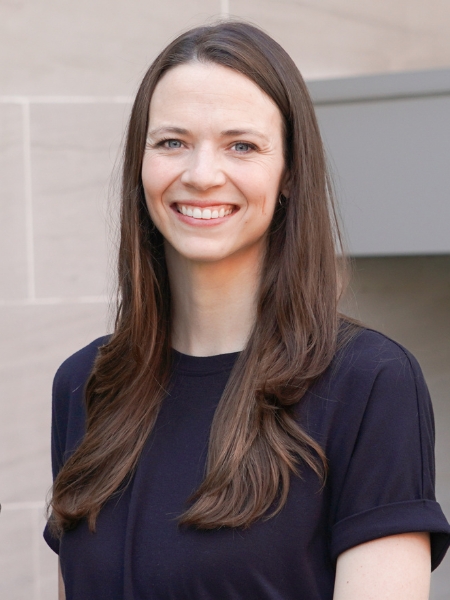University of Alabama at Birmingham student Kayla McCullough enjoys trying to get at the root of a problem. That is why after beginning her Ph.D. training at the School of Dentistry in 2020, she enrolled in the Dental Academic Research Training program (DART) to gain research experience and develop as a clinician scientist.
 That decision is paying dividends for McCullough, who recently received an F30 Fellowship from the National Institute of Health that will provide funding for both her DMD/Ph.D. training and her research work. It is research that eventually might help solve problems related to bone loss that exposes the roots of teeth.
That decision is paying dividends for McCullough, who recently received an F30 Fellowship from the National Institute of Health that will provide funding for both her DMD/Ph.D. training and her research work. It is research that eventually might help solve problems related to bone loss that exposes the roots of teeth.
McCullough’s research is focused on the role of protein modification that influence synthesis and maintenance of bone tissue. The overall goal, she says, is to obtain a better understanding of how to treat skeletal disorders such as osteoporosis and osteopenia. But there are dental benefits to such research, according to SOD associate dean Amjad Javed, Ph.D., the director of the DART program.
“If you have low bone mass, you can have exposure of the roots and eventually loss of teeth,” Javed says. “Also, we can’t install implants if a patient has low bone mass, because for the implants to anchor, they need a certain level of bone. So maintaining that bone height is critical to preserving the teeth.”
McCullough’s interest in medicine – and in UAB – began as a child. Her father worked at UAB Hospital and her stepmother was a graduate of the UAB School of Optometry.
“I was integrated into the UAB atmosphere at a young age,” McCullough says. “I’ve been around it my whole life, and eventually I wanted to make UAB my educational home as well.”
In addition, McCullough had braces on her teeth when she was growing up, requiring repeated trips to the orthodontist. Over the years, she says she became increasingly curious about the dental profession.
“I thought it was very interesting how they took my gap smile and made it nice and perfectly straight. I felt like my self-confidence increased after that,” McCullough says. “That was one of the reasons I became interested in dentistry. The number one priority is a patient’s health. But if you can improve someone’s teeth and their smile, it can also give them a boost in self-esteem and the confidence to help them excel in all avenues of their life both personally and professionally.
“I also liked the hands-on skills of being a dentist. So late in high school I started exploring dentistry. I shadowed all sorts of dental specialties. Then in college I added an interest in research on top of that.”
McCullough received a Bachelor of Science degree in Biology from Birmingham-Southern College in 2014. While still an undergrad, she participated in some research studies of cancer treatments, then was introduced to Javed’s lab at the UAB SOD, where she received her Master’s in Oral Biology in 2017.
“I thought doing research was very intriguing,” McCullough says. “I loved asking questions and then working to try to figure it out. I want to see how we can better understand these disorders to treat the patient as a whole, be it dental or skeletal.
“Research is all about asking questions, searching for the answers, then linking it to health and how we can help the population as a whole. It’s important to grow that knowledge for patient health care.”
Javed says he has been impressed with McCullough’s accomplishments so far at UAB, pointing out that she is only the second SOD student over the past 15 years to receive an F30 Fellowship on her first submission for the grant.
“She is an outstanding student and researcher,” Javed says. “Instead of just listening and training, she is working on discovering new pathways to treat patients. So when issues come up in the future, she will be able to understand and address those concerns.”
Discovering potential new treatments for patients is a driving motivator for McCullough, who has some ambitious goals she would like to accomplish from the F30 funding.
“I would like to get at minimum two quality publications from this research,” McCullough says. “The first being on the overall expression of various components of SUMOylation during bone formation that are currently unknown. And the second being, how does halting SUMOylation affect skeletal growth and homeostasis? I also want to present my work at local and national conferences to help share this knowledge."
While conducting her research, McCullough will begin the UAB D.M.D. program in the fall.
“After that, I’d like to do an orthodontic residency program and continue my skeletal research, at UAB as faculty. And gaining my clinical skills and being able to help patients firsthand is very exciting. My long-term goal is to teach, do research and treat patients here at UAB.”